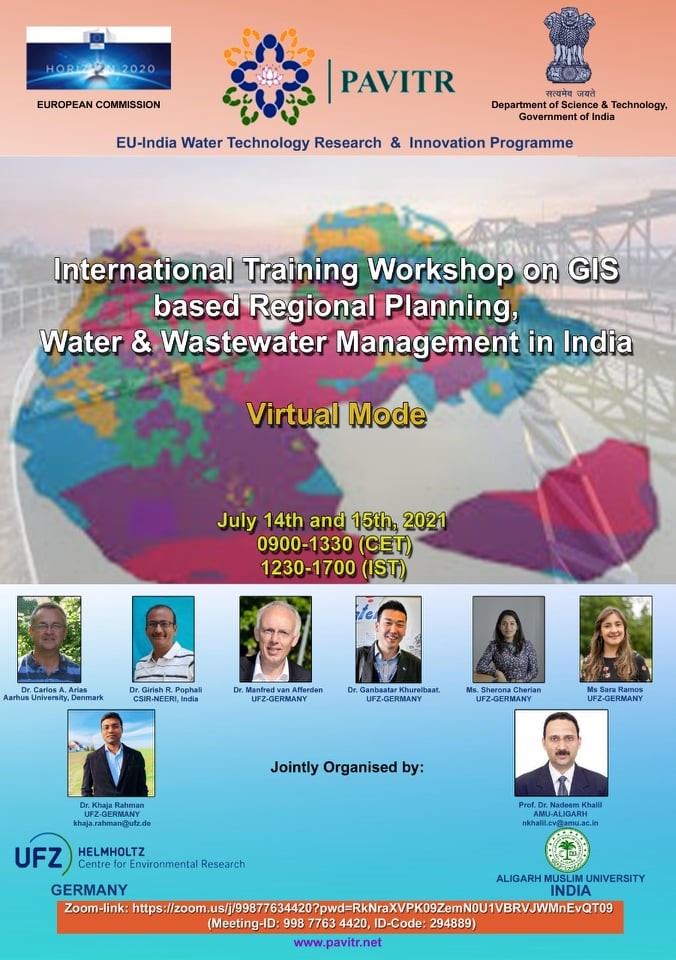14.07.2021 - 1st Training of Local Partners/stakeholders: ALLOWS tool/Methodology

The 1st training workshop of local Indian partners/stakeholders on GIS-based ALLOWS tool/Methodology was jointly organised by the Helmholtz Center for Environmental Research (UFZ), Germany and the Aligarh Muslim University (AMU), Aligarh, India, as a virtual meeting on 14th and 15th of July, 2021.

The main purpose of this training workshop was to train the Indian partners/stakeholders to use the newly developed ALLOWS methodology for planning regional water and wastewater management in order to be able to contribute to its implementation in the selected region near Aligarh, UP, India. Therefore, this training workshop was targeted to attract the most number of Indian participants, who are professionally working in the field of water supply and sanitation and responsible for environment and sewage management in India. Therefore, potential participants from various research institutions, universities, local government bodies (e.g. municipalities, plant operators), NGOs, consulting agencies etc. were invited to attend the training workshop. The interested participants and partners of PAVITR project from several European countries and from India were also invited to attend the training workshop.
The workshop was jointly moderated by Dr. Khaja Rahman from the UFZ, Germany and by Prof. Dr. Nadeem Khalil from AMU, Aligarh, India. The training workshop produced an insight understanding on GIS-based ALLOWS too/methodology and a roadmap of the future tasks for the Indian stakeholders/decision makers. The workshop served to raise awareness on the topic, current trends, challenges and activities among the workshop participants. Nearly 40 participants from different organisations of India and EU countries took part in the workshop. Most of the participants were government representatives, semi-government bodies as well as researchers, nongovernmental organization (NGO) representatives, consultants and graduate/post-graduate students from India. Even though the training workshop program was conducted in online mode with all the presentations and discussions online, the whole format was highly participative. It was structured to facilitate and allow all the participants to enter into discussions after each individual presentations. There were inputs from the key trainers, guest speakers, workshop organisers and insights from the Indian participants. Feedback from the workshop participants were very positive at the end and they showed great value in working with such innovative and advanced tool for sanitation management planning in India.
